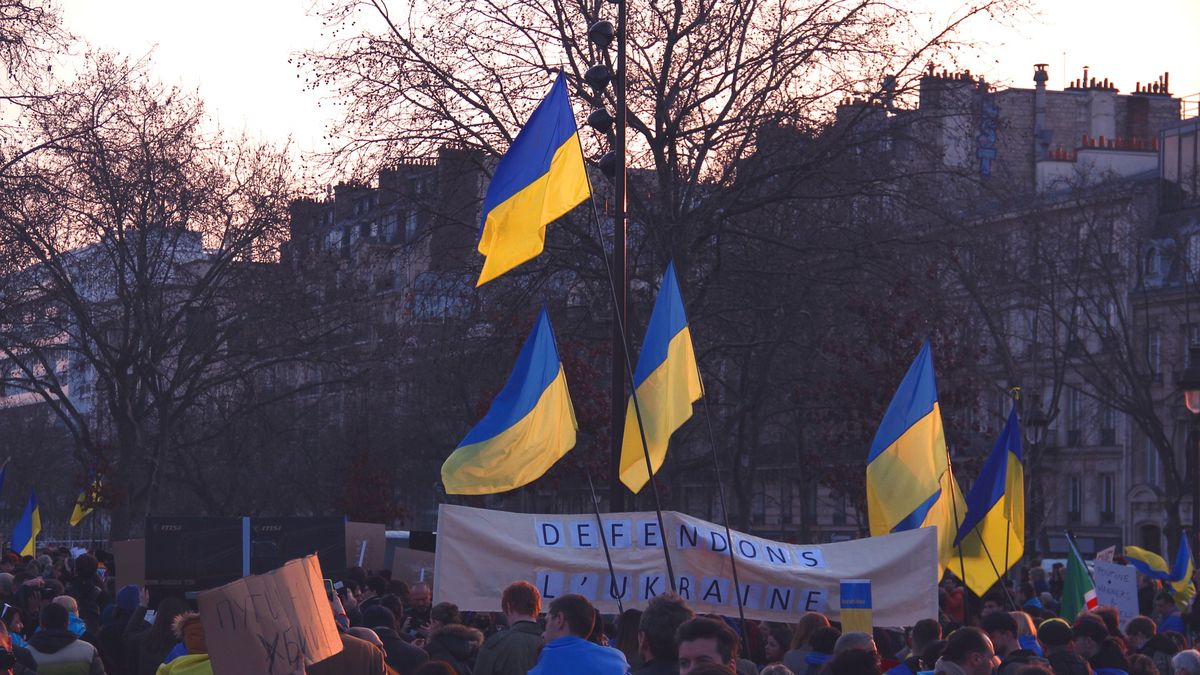Why has the war in Ukraine become much more visible than others? Is it an eminently economic dilemma? Probably not. We can affirm that the majority of Russians and Ukrainians do not live in extreme poverty, although there are a variety of socio-economic (and macroeconomic) problems, if we do not observe the high rate of indebtedness of Ukraine with the IMF, or even the productivity levels of Russia), which make them relatively vulnerable like most global citizens.
Is it a problem of perceived scarcity of strategic resources – food and hydrocarbons? Either. To quote history, all the wars in the Middle East caused productive and financial turbulence at a global level – especially in terms of inflation that hits the poorest countries -, but none of them with consequences that have generated stupor in the face of a situation that, although complex, can be solved in the medium term.
Is it an ideological question? No internationalist really disputes whether we are facing a fight of ‘good against evil’, or whether we are experiencing a deja vu of the battles between Nazis and Communists. Sure there are a few sympathizers of the Third Reich in Ukraine, but they are not the majority of the population. And Putin is a staunch capitalist, a defender of private property ‘in his own way’: with an oligarchy at his side doing business under the cloak of ‘aggressive Christian nationalism’, he has half the population ‘enchanted under the spell ‘ which represents the return of the once great imperious Russian. And the other half are afraid of ending up in jail if they fight for even minimal civic rights.
Will the answer be found in the fear that Russia’s thousands of nuclear warheads will unleash a Third World War in the face of a NATO response? Most of us who are alive do not know what a military conflict on an international scale between several relevant States really is; Hollywood movies are unparalleled in the real world for what a devastating nuclear war would look like in the 21st century.
In this sense, beyond the concern for Russia, China – exemplified in the recent AUKUS pact between the United States, Australia and the United Kingdom to contain its regional claims (Taiwan, the South China Sea, etc.) -, or Iran – with its nuclear program and the possibility of destabilizing the entire Middle East – the decision that everyone pushes their respective ‘red buttons’ – with the devastation on a global scale that this would entail – is highly unlikely.
So the reflection could be: Why does this war have such an impact? Or we might ask ourselves: Why aren’t we ‘so shocked’ by the death of ‘innocent men, women and children’ in other parts of the world?
Does anyone think of the 233,000 dead in Yemen in the last decade, with 2,300,000 children suffering from some degree of malnutrition? Who puts the focus on the war that started more than a year ago where it is estimated that more than 9 million Ethiopians need some kind of humanitarian aid? And the 14 million people (more than 25% of the country’s population) who have suffered some kind of humiliation since the coup in Myanmar? Not to mention the conflict in Syria, which left more than 380,000 dead and 200,000 missing.
Our Latin America is not exempt from violence and death either. Although there is no inter-state conflict, we know that the Mexican State has lost its monopoly on violence in large areas of the country, where law and order are ruled by the Cartel on duty. The consequence: 275,000 murders in the last 15 years. On the other hand, crimes are also the order of the day, centered on political (Nicaragua) or socio-economic (Haiti) violence. There, too, the dead number in the thousands.
Is it because they are sudacas, mulattoes, with Semitic features, or Asians that we don’t get goosebumps? Unfortunately, we have to state that in the current global stupor, this point seems to be the most important: the racial/ethnic origin of the Ukrainians. We cannot be hypocrites. White population – many of you blonde -, European, Christian, with typically ‘Western’ features (and the values that this entails). Never better expressed the saying “We are all equal, but some are more equal than others”.
The most interesting thing, and here is also the relevance of mental colonization – because today States fight each other through cyber attacks, disinformation campaigns, economic coercion or the socio-political instrumentalization of migrants – is that it is possible to convince about a truth altruistic to human beings who do not belong to these ‘racially superior’ groups, but support their cause. And without trying to dive too deep, we can affirm that an industrial worker from the central cordon of the United States does not have much to do with a farmer from the Ukrainian Southwest.
But this happens and intrinsic racism, the one that normalizes and differentiates between those who can live better (at least a little) from those who unfortunately ‘happened’ the bad luck of being born in poor countries, governed by unpunished dictators who don’t care about their people , and above all far removed from that ‘pattern of external beauty’ imposed by the dogma of NATO culture – why not define it that way in these times where military symbology reigns -, is the thinking of a large part of the global population who ‘suffers’ for Ukrainian families.
Finally, I believe that a no lesser portion of our Argentine population is a great exponent of it; and why not say it, to which is also added a potpourri of everything previously exposed. They are not only a white-skinned European people (as theoretically we are), middle class (as theoretically we are), but we also hate communists (because they once told us they are bad), and those who speak with vehemently like President Putin (regardless of what he says – here we could make an allegory with a former president -) because it is violent, and above all to those who seek to destroy our Western way of life (??)!. And so it could go on.
Now, and for the malnourished Qom children of the Chaco, are we not anguished? Is it necessary – or sufficient – that they are in an armed conflict for us to be ‘crusaders’ and come to their defense? Or are many of us intrinsically inculcated that they fall within the parameters of Indians (blacks for the urban upper-middle class), poor and lazy, who like to live in poverty without working?
In short, what we can affirm is that this war scenario has faithfully reflected, what we could call once again, our ‘organized mental hypocrisy’.
Economist and Doctor in International Relations. Twitter: @KornblumPablo
Source: Ambito




